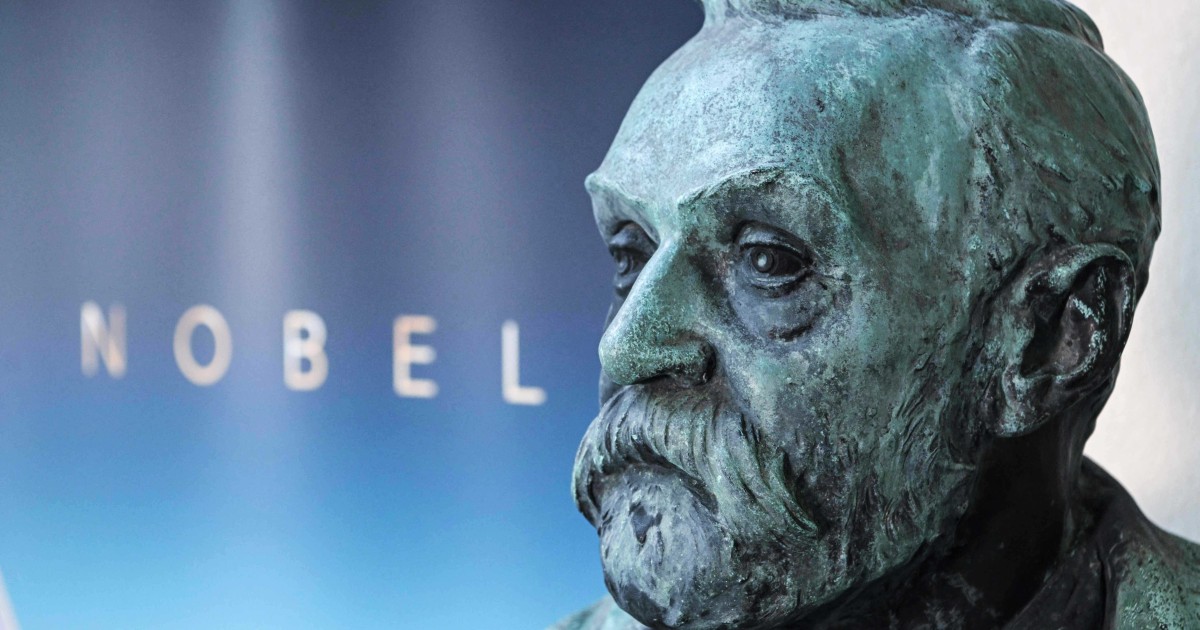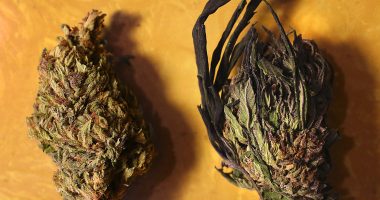
Three scientists based in the U.S. won the Nobel Prize in chemistry Wednesday for their work on quantum dots — tiny particles just a few atoms in diameter that can release very bright colored light and whose applications in every day life include electronics and medical imaging.
Moungi Bawendi, of MIT; Louis Brus, of Columbia University; and Alexei Ekimov, of Nanocrystals Technology Inc., were honored for their work with the particles that “have unique properties and now spread their light from television screens and LED lamps,” according to the Royal Swedish Academy of Sciences, which announced the award in Stockholm.
“They catalyze chemical reactions and their clear light can illuminate tumor tissue for a surgeon,” the academy said.
Quantum dots’ electrons have constrained movement, which affects how they absorb and release visible light, allowing for very bright colors.
The dots are nanoparticles that glow blue, red, or green when illuminated or exposed to light. The color they emit depends on the size of the particles. Larger dots shine red, and smaller dots shine blue. The color change is due to how electrons act differently in more or less confined spaces.
While physicists had predicted these color-change properties as early as the 1930s, creating quantum dots of specific controlled sizes was not possible in the lab for another five decades.
In a highly unusual leak, Swedish media reported the names of the winners before the prize was announced.
“There was a press release sent out for still unknown reasons. We have been very active this morning to find out exactly what happened,” Hans Ellegren, the secretary-general of the academy, said during the news conference where the award was announced. “This is very unfortunate and we deeply regret what happened.”
The academy, which awards the physics, chemistry and economics prizes, asks for nominations a year in advance from thousands of university professors and other scholars around the world.
A committee for each prize then discusses candidates in a series of meetings throughout the year. At the end of the process, the committee presents one or more proposals to the full academy for a vote. The deliberations, including the names of nominees other than the winners, are kept confidential for 50 years.
Ekimov, 78, and Brus, 80, are early pioneers of the technology recognized Wednesday, while Bawendi, 62, is credited with revolutionizing the production of quantum dots “resulting in almost perfect particles. This high quality was necessary for them to be utilized in applications,” the academy said.
Bawendi told the news conference that he was “very surprised, sleepy, shocked, unexpected and very honored.”
“The community realized the implications in the mid 90s, that there could potentially be some real world applications,” Bawendi said.
Asked about the leak, he said he didn’t know about the prize until he was called by the academy.
On Tuesday, the physics prize went to French-Swedish physicist Anne L’Huillier, French scientist Pierre Agostini and Hungarian-born Ferenc Krausz for producing the first split-second glimpse into the superfast world of spinning electrons.
On Monday, Hungarian-American Katalin Karikó and American Drew Weissman won the Nobel Prize in medicine for discoveries that enabled the creation of mRNA vaccines against COVID-19.
The chemistry prize means Nobel season has reached its halfway stage. The prizes in literature, peace and economics follow, with one announcement every weekday until Oct. 9.
The Nobel Foundation raised the prize money by 10% this year to 11 million kronor (about $1 million). In addition to the money, winners receive an 18-carat gold medal and diploma when they collect their Nobel Prizes at the award ceremonies in December.
Source: | This article originally belongs to Nbcnews.com









